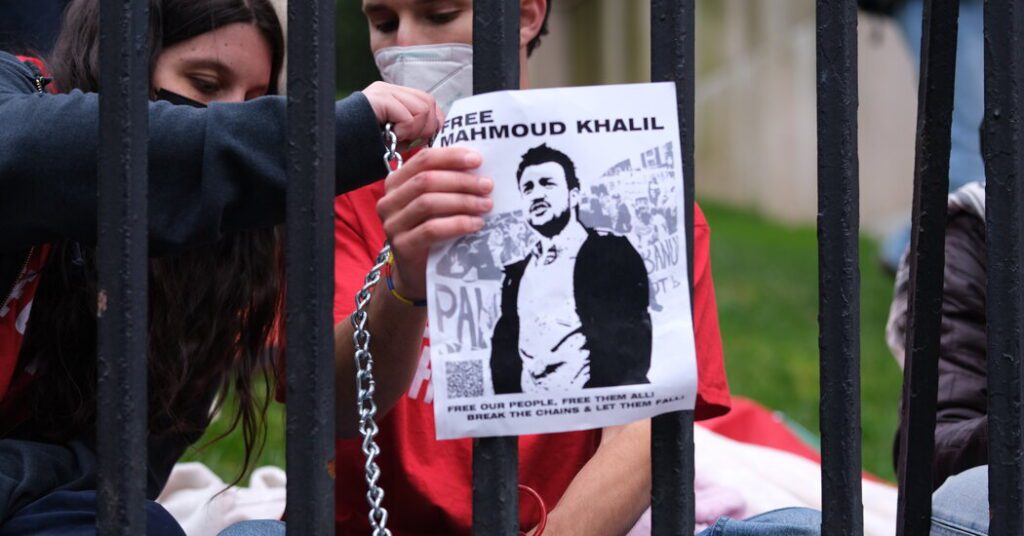Columbia University Faces Shifts in Campus Protest Management
In a notable change to its approach, Columbia University’s Public Safety Department recently intervened in a student protest, marking a departure from a long-standing practice of limited physical involvement with demonstrators. This shift was highlighted during an event where students protested for answers regarding a federal investigation involving a Palestinian activist.
Demonstration and Public Safety Intervention
On a Wednesday evening, students—primarily Jewish—chained themselves to the university’s gates, demanding accountability from the administration regarding the government’s actions against Mahmoud Khalil, a former student and activist. Public safety officers responded by physically detaching the demonstrators from the gates, leading to several confrontations that left some students feeling physically threatened.
“I yelled out in pain that they were cutting off the circulation to my wrist, but they ignored me and proceeded to drag me from under my arms,” recalled Maryam Alwan, 22, a student involved in the demonstration.
A Shift in University Policy
This assertive stance from public safety comes amid calls for more stringent regulation of campus protests, particularly in the wake of escalating tensions related to pro-Palestinian demonstrations. In previous protests, Columbia typically refrained from direct intervention, often relying on the New York Police Department when necessary. However, increasing pressure from external entities—including the Trump administration—has prompted the university to re-evaluate its policy on managing campus demonstrations.
According to university statements, officers warned demonstrators of impending disciplinary actions if they did not disperse, citing violations of protest regulations. When students remained chained, public safety officers intervened, cutting the chains and escorting participants off campus.
Introduction of New Enforcement Personnel
In light of the recent events, Columbia has announced plans to enhance its Public Safety Division. The university intends to hire additional “special patrol officers” who will undergo extensive training and be granted arrest powers. Notably, these officers will remain unarmed and will transport any detained individuals to local law enforcement facilities.
“Our aim is to manage as many situations on campus autonomously,” stated Cas Holloway, the university’s chief operating officer, underscoring the intent to minimize reliance on external law enforcement when addressing on-campus protests.
Impact on Campus Culture
The change in enforcement approach has raised concerns regarding the management of political expression on campus. Critics argue that the recent intervention signals a diminishing tolerance for student protests, particularly in light of the peaceful nature of the demonstration that occurred before the crackdown. Faculty voices echoed concerns about how such actions may influence students’ freedom of expression.
“Security personnel should only be putting their hands on members of our community if it’s absolutely necessary,” asserted Joseph Howley, a faculty member supporting the demonstrators.
Columbia’s decision to amend its policies has led to a mixture of apprehension and support among faculty and students as the university endeavors to balance safety and freedom of expression.


